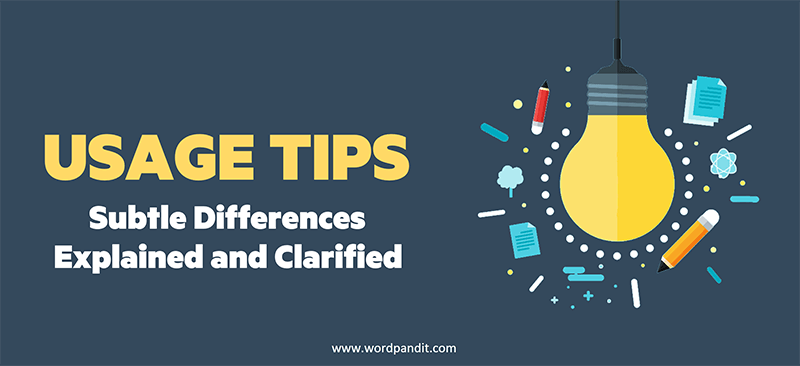Bogey vs. Bogy: The Confusing Word Pair that Spooks Us All
Have you ever wondered if the term ‘bogey’ has anything to do with the spooky ‘bogy’ under the bed? 🤔🛏️ You’re not alone! These words may sound similar and sometimes even conjure up eerie images, but they mean very different things. Understanding the difference between ‘bogey’ and ‘bogy’ can help you avoid some common and potentially hilarious misunderstandings—like worrying about a golfing score when you’re talking about something haunting the closet! 👻
The confusion between these two words is common, and it’s easy to see why. Both ‘bogey’ and ‘bogy’ have similar spellings, are pronounced the same way, and even have some eerie associations. 😨 However, their meanings are quite different, and knowing which one to use can make a big difference. Whether you’re a golfer trying to keep your score down 🏌️♂️ or a storyteller looking to frighten your audience, understanding these terms will keep you on the right track.
Let’s dive in and clear up the confusion once and for all. 🕵️♂️✨
Definitions and Pronunciations
Bogey (\ˈboʊɡi): In golf, a ‘bogey’ refers to scoring one stroke over par on a hole. It also has a secondary meaning—a slang term for an unidentified aircraft, especially one that could be hostile. 🏌 This term is most often used by golfers who are not entirely happy with their performance on a particular hole but still managed to do better than a double bogey.
Bogy (\ˈboʊɡi): ‘Bogy’ is less common and often used to describe a mythical, frightening creature, similar to the ‘bogeyman’ that children fear hides in closets or under beds. 👹 The ‘bogy’ is often depicted as a scary being that lurks in the dark, used to keep children in check by parents who want them to behave. Unlike the golfing term, ‘bogy’ has a distinctly eerie and spooky vibe. 🕸️
Etymology: Where Did They Come From?
Bogey comes from 19th-century British slang. Initially used to describe a person or fellow (often as ‘bogey man’), it evolved into a golfing term over time, suggesting the idea of being behind or slightly off par. The golfing connotation developed when players began aiming for the “bogey score” as a benchmark, which was eventually overtaken by the modern concept of par. ⛳
Bogy has roots in the word ‘bogeyman,’ a mythical creature meant to scare children into good behavior. Its origins trace back to Middle English and are related to words for goblins and mischievous spirits. 👻 The idea of a ‘bogy’ has been around for centuries, often representing the embodiment of fear or the unknown, playing a role in folklore and ghost stories across different cultures. 🌌
Usage Examples
Bogey: “After missing the putt, I ended up with a bogey on the 7th hole.” 🎯 It’s a term that golfers are quite familiar with, and while it may not be the best score, it’s definitely better than worse alternatives. 🏌️♂️
Bogy: “My little sister insists there’s a bogy hiding under her bed.” 💀 The idea of a ‘bogy’ lurking in the dark is enough to give anyone the creeps, especially when told in a dark room during a thunderstorm. 🌩️😨
Synonyms & Antonyms
Bogey:
- Synonyms: stroke over par, intruder (aircraft) ✈️
- Antonyms: par, birdie, eagle 🦅
Bogy:
- Synonyms: specter, phantom, goblin 👺
- Antonyms: angel, protector, guardian 😇
Comparison and Contrast
These two words may seem similar, but their contexts couldn’t be more different. If you’re on the golf course, you’re aiming to avoid a ‘bogey.’ 🏌️♂️ However, if you’re telling ghost stories, you might be describing a ‘bogy.’ 👻 Remember, a ‘bogey’ is something you can score, while a ‘bogy’ is something that might keep you up at night! 🌃😱
A golfer might lament their ‘bogey’ because it indicates they performed below their ideal standard. 😔 On the other hand, a child might be terrified of a ‘bogy’ because it represents the fears lurking in the shadows. 👶💭 The key to not mixing these two up lies in their contexts—one is all about the game, and the other is about spooky folklore. 🏌️👻
Contextual Usage
“He scored a bogey on the 9th hole, but later joked that the real challenge was facing the bogy hiding in his closet.” 😂😨 This sentence showcases both meanings effectively, highlighting the lighthearted nature of a golf bogey versus the frightful connotation of a lurking bogy.
Mnemonic Device
Think of ‘Bogey’ in golf—there’s a golf ball ⛳ and ‘g’ in it. Imagine that golf ball rolling into a hole, just slightly off from what you wanted. Meanwhile, ‘Bogy’ can be associated with ‘Boo!’ 👻 and goblins 👺 to remember the spooky connotation. If it helps, picture a ghost popping out and shouting “Boo!” every time you think of a ‘bogy.’ 😱👻
Related Words
If you enjoyed distinguishing between ‘bogey’ and ‘bogy,’ you might also be interested in other similar pairs, such as:
- Ghoul vs. Goblin: Both are spooky creatures, but ghouls tend to have a stronger association with graveyards and eating flesh, whereas goblins are mischievous little beings. 🪦👹
- Specter vs. Spirit: A ‘specter’ often has a more ghostly, haunting presence, while a ‘spirit’ can be positive or negative depending on context. 👻✨
Conclusion
Now you know that a ‘bogey’ is more likely to ruin your golfing score than haunt your bedroom, while a ‘bogy’ might just do the opposite! 🏌️♂️👻 Remember, context is key, and with a little practice, you’ll never confuse these two again. Whether you’re hitting the greens or telling ghost stories, using the right word can make all the difference. 💡 So next time, make sure you don’t mix up your golf terms with ghostly tales! ⛳👻
Test Your Knowledge: Bogey vs. Bogy Quiz
1. After he missed the putt, he ended up with a ___ on the 6th hole.
2. A bogy is a term for scoring over par in golf.
3. The children were convinced there was a ___ hiding in the attic.
4. Which of the following is a synonym for bogy?
5. ‘Bogy’ can be used to describe a golf term.
6. In folklore, a ___ is a mischievous spirit or goblin.
7. Which of the following is not a correct use of the word ‘bogey’?
8. A ‘bogey’ can refer to an unidentified or hostile aircraft in military slang.
9. In golfing terms, a ___ is when you score one stroke over par.
10. Which of the following is a synonym for *bogey* in golf?














Really nice stuff..!! keep going 🙂